Contact UsCONTACT
Please feel free to contact us if you have any questions or concerns.
Inquiry FormStories
STORIES
SERIES EMBARK
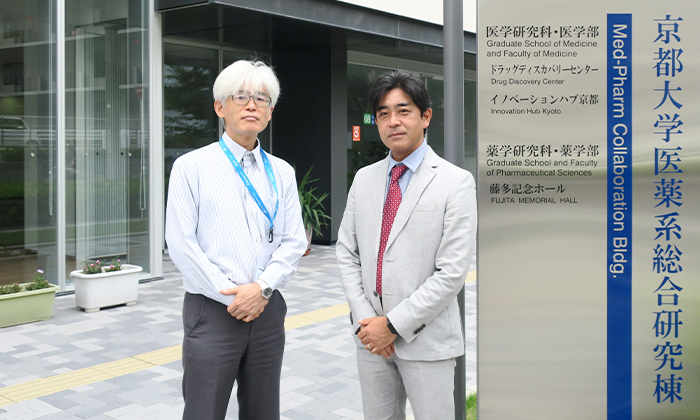
Thyas Inc. changed its name to Sinobi Therapeutics Inc. on December 12, 2023.
Using iPS cell technology to realize personalized medicine for cancer; Thyas Inc. which began receiving support from Kyoto University Innovation Capital (Kyoto-iCAP) in June 2017, aims to develop such a business. In fact, killer T cells, which inhibit tumor growth, lose their ability to suppress tumors when chronically exposed to stimuli. Therefore, killer T cells taken from the patient's body are once initialized into iPS cells, which are then differentiated again into killer T cells with tumor-killing properties. By administering these cells to the patient's body, immunotherapy using autologous killer T cells could be realized. We interviewed Yasumichi Hitoshi and Ryosuke Gonotsubo, representative directors of the company, about the company's progress toward clinical development. (Interviewer: Sae Ito)
After graduating from Kumamoto University Faculty of Medicine, he went on to graduate school to study immunology. After that, I worked as an assistant at the Institute of Medical Science, University of Tokyo, and studied at Stanford University before joining a drug discovery venture started by the boss who helped me at Stanford University. I was working on cancer drug discovery using small molecules. At first, I intended to stay with the company for only two or three years, but my boss and I got along well, and before I knew it, nearly 20 years had passed. Later, I was told about Thyas through Kyoto-iCAP and became the president in June 2017.
When I was a student, the most common treatment for cancer was a wide excision. Although a wide resection often resulted in freedom from cancer, many people's quality of life (QOL) deteriorated afterward. For example, when osteosarcoma, which often occurs in young people, developed in the shoulder, the treatment was to amputate the shoulder and beyond. It was around this time that immune cells began to attract attention. I became very interested in the idea that cancer could be treated without extensive resection using immune cells.
The business that Thyas aims for is to cure cancer with immune cells. This was exactly what I had dreamed of when I was a student. I felt a connection to being involved in the treatment of cancer, which I had always wanted to do, and decided to take the position without hesitation.
As a company, we started from scratch. Since I was not an expert in developing business concepts, the capitalists took the lead in creating a business plan for us. In addition, we also asked for assistance in applying for public funds and licensing-related matters. The presence of Kyoto-iCAP, which had already established a relationship of trust with the university internally, was significant. Looking back now, I think it would have been difficult to industrialize university seeds in Japan without the kind of support we received from Kyoto-iCAP.
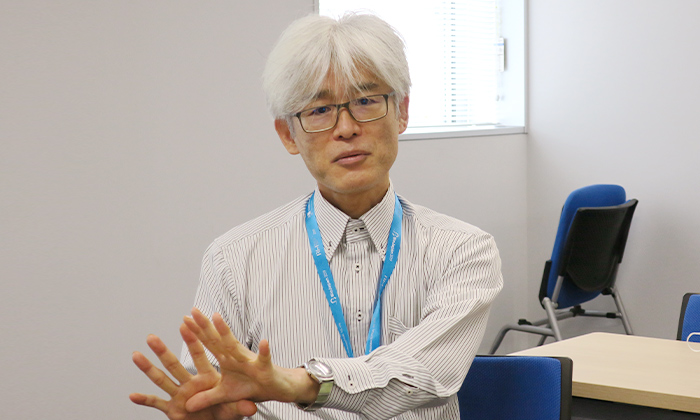
We want to achieve personalized cancer treatment for each patient. The human body has a built-in immunity against cancer. Among them, killer T cells are said to be the most potent killers of cancer cells. However, in the bodies of cancer patients, the number of killer T cells that have been fighting cancer for many years has decreased, or they have become exhausted and their cytotoxicity has declined. Therefore, we are considering the practical application of immunotherapy in which killer T cells are isolated from the patient's body, converted into iPS cells, differentiated into healthy killer T cells again, and administered to the patient's body.
While there is a possibility of rejection if other people's cells are used, there is no such fear if one's own cells are used. Therefore, they can remain in the body for a long time and long-term response can be expected. There are also advantages to personalization using the patient's own cells. Because the immunogenetics and genetic mutations of cancer vary from person to person, it is difficult to treat everyone the same way with the same drug. In this sense, treatment using the patient's cells is very significant, and if it can be realized, we expect it to have a high therapeutic effect. I believe that this kind of personalized medicine can only be realized through venture businesses.
The research results of Associate Professor Arata Kaneko of Kyoto University's iPS Cell Research Institute, who is the founder of our company, are the basis of our company's technology: killer T cells are isolated from the patient's body, initialized into iPS cells, and then differentiated into killer T cells again. However, university technology can be a "30% hitter" as long as the phenomenon can be verified. In contrast, to commercialize the technology, we must aim to hit almost "100 percent". Currently, we are attempting to optimize the 30% hitter to become a 10% hitter. As soon as the cell production protocol is completed, we would like to proceed to the non-clinical and clinical phases.
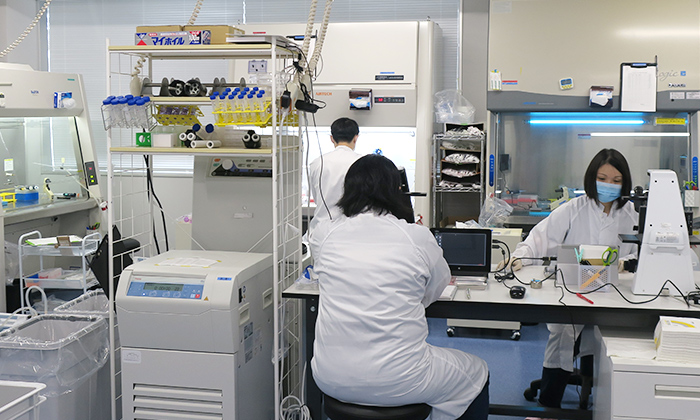
In terms of funding, Kyoto-iCAP has provided us with support in terms of connections with related investors and how to proceed with our business, especially in terms of investment. And perhaps the greatest support from Kyoto-iCAP is that Gonotsubo, who had been supporting us as a capitalist, assumed the position of Representative Director in August 2020. (The two representative system of Hitoshi and Gonotsubo was introduced on August 1, 2020.)
From this point forward, Thyas will be in the stage of becoming self-supporting away from Kyoto-iCAP. Kyoto-iCAP's role is to provide human or financial support during the highest risk periods, such as the seed and early stages. As a result, we recognize that the number of employees at Thyas has increased and the budding manufacturing base is now in place for the company to become a 100% hitter. From here, I believe that this is the stage where we will transform "amazing science" into an "amazing company" through strengthening business, finance, governance, and other aspects, and I would like to lay the foundation for this as Representative Director.
While this may not seem so unusual in the world, this was the first example of its kind at Kyoto-iCAP. Kyoto-iCAP is "not only a connoisseur of science, but also strong in management. In other words, with Kyoto-iCAP's support, we will become a strong company." I would like to demonstrate this by growing Thyas.
I felt that I was one of the founding members of Thyas, and I had a feeling that one day I would join the company. I knew that if I was going to do it, I had to take a bold step forward, rather than leaving one foot in Kyoto-iCAP. It is not that I am not anxious, but when I am, I try to unravel why I am anxious. Since I was young, I have always felt that stability is not something that is given to you by others, but something that you create yourself. I decided to join the company because I thought that now was the time to seriously tackle management.
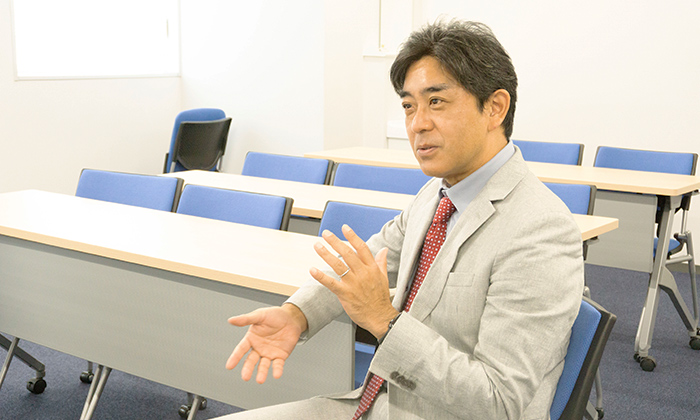
I want them not to be afraid of failure. If you think too much about the outcome, you will not be able to take the first step, so if there is something you want to try, I want you to boldly take on the challenge. What I also think is important when working at a venture company is to gather as much information as you can at this point in time. To put it in the extreme, I think it is necessary to ask 10 questions and learn 10 things.
However, the time when all the information is available will never come. I think you are anxious about such a situation because you are serious about what you want to do. If you think carefully about what you are afraid of and what kind of failure is possible without closing your eyes, I think it will turn into a problem to be solved, not a fear.
(Interviewed in August 2020. Affiliations, positions, etc. are as of the time of the interview)
Thyas Inc. changed its name to Sinobi Therapeutics Inc. on December 12, 2023.
With recent scientific advances, various cancer therapies, including cancer immunotherapy, have become the gospel for patients. Thyas combines iPS cell technology with immunology and embryology to develop new iPS cell therapies. Kyoto-iCAP hopes that Thyas' novel iPS cell medicine will become a new therapeutic tool for cancer patients.
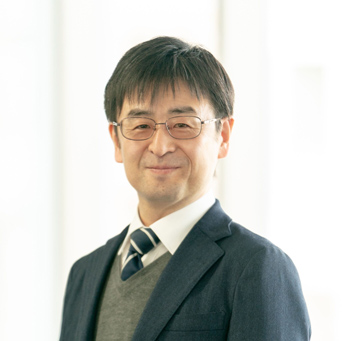
Hiroyuki Ueno

Sinobi Therapeutics Inc. (formerly Thyas Inc.)
Website
Please feel free to contact us if you have any questions or concerns.
Inquiry Form